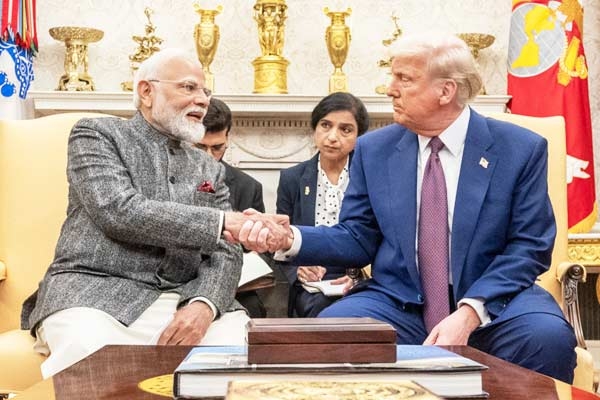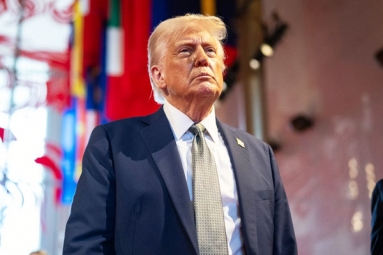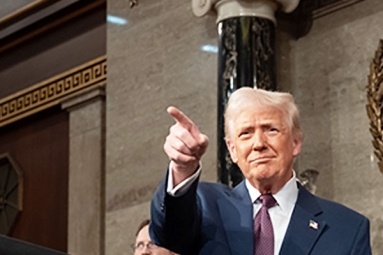
(Image source from: x.com/WhiteHouse)
The recent announcement by President Donald Trump regarding reciprocal tariffs on all trading partners has elicited considerable apprehension and uncertainty on a global scale. This decision comes just before his discussions with Prime Minister Narendra Modi and is intended to rectify the prolonged trade imbalance, wherein other nations levy elevated tariffs on American products while the U.S. operates a more liberal economy. Analysis from Cousins reveals that India applies tariffs on U.S. imports that exceed U.S. tariffs on Indian goods by over 10 percentage points. Mr. Trump noted, "They can establish a factory here, a plant, or whatever it may be, including in the medical field, automobiles, chips and semiconductors-everything." He further remarked, "If you produce here, there are absolutely no tariffs. I believe this will lead to a surge of job opportunities in our country."
This action holds particular significance for India, a nation significantly impacted by the proposed reciprocal tariffs. With average tariff rates on U.S. exports hovering around 9.5%, in contrast to the U.S. tariff rate of 3% on Indian imports, India finds itself susceptible to retaliatory measures. Analysts from Nomura indicate that India's effective weighted average tariff on U.S. exports is notably greater than the tariffs the U.S. imposes on Indian exports. Prior to his engagement with Mr. Modi, Mr. Trump remarked that India presents challenges for business operations due to its elevated tariff rates. "Yet again, whatever they impose on us, we’ll reciprocate. It creates a favorable dynamic—simple and harmonious, eliminating concerns about charging excessively or too little," he stated.
The ramifications of these tariffs are anticipated to be extensive, particularly affecting India's agricultural products, vegetables, textiles, and apparel industries. Other critical exports from India to the U.S., such as electrical machinery, gems and jewelry, pharmaceuticals, automobiles, and iron and steel, could also see notable impacts from these tariffs. In light of these developments, India is contemplating lowering tariffs on over 30 specific products and increasing imports of U.S. defense and energy goods as a strategy to alleviate trade tensions. Nonetheless, the trade dynamics between India and the United States are intricate, and the introduction of these tariffs is likely to yield widespread effects for enterprises and consumers alike on both fronts. As Mr. Trump advances his plan for reciprocal tariffs, countries like India, Japan, and members of the European Union are predicted to bear the brunt of these changes. With a potential implementation date of April this year, India is preparing for the economic and trade ramifications.
Additionally, these reciprocal tariffs could have broader consequences for international trade as a whole. This initiative signifies a notable alteration in U.S. trade policy, likely impacting global trading relationships in substantial ways. In the short term, consumers may face increased prices, and businesses could experience diminished competitiveness. However, in the long run, this measure might foster a more equitable trade relationship between the United States and its trading partners.






















